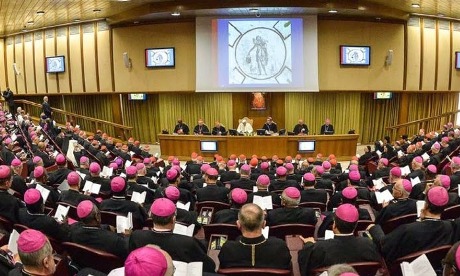Bishops at the synod on the family last week grappled with the issue of access to the sacraments for divorced and civilly remarried Catholics.
In 93 interventions at the synod on Wednesday and Thursday, widely different views were expressed.
A key issue is whether there could be any possibility for divorced and remarried people to take on some sort of “penitential path” that would eventually allow them to receive the Eucharist.
A Vatican spokesperson told a media briefing that this issue crystallises the differences in the two approaches.
Some bishops want the Church to “accompany people in spite of their failures without watering down [church] teaching”.
Others warned against “quick fixes or quick solutions” to pastoral problems.
Those in favour of some sort of “penitential path” did not want to allow “indiscriminate access to the Eucharist, but a customised approach for each diocese”, the spokesperson said.
Bishops had said that divorce “is a sort of tragedy for the family” but asked: “How can the Church punish something that is part and parcel of the human experience?”
One bishop had spoken of a need to “profess the faith with clarity, to know what the creed means and also to know not only such expressions as doors wide open but the importance of the narrow path sometimes, which is difficult to follow”.
One bishop had reportedly told the synod of a particularly moving story about a child of a remarried couple who had received the Eucharist and then shared it with their parents.
That bishop, another Vatican spokesman said, wanted to show “the suffering of the children of these divorced and remarried couples”.
German Cardinal Reinhard Marx asked the synod how could the Church refuse people the sacramental experience of God’s mercy, even if they really and honestly repented their share in the breakdown of their first marriages?
Cardinal Marx pleaded that divorced and civilly remarried Catholics, who played an active role in their parishes, be allowed to receive the sacraments under certain conditions and only after considering each individual case.
Sources
